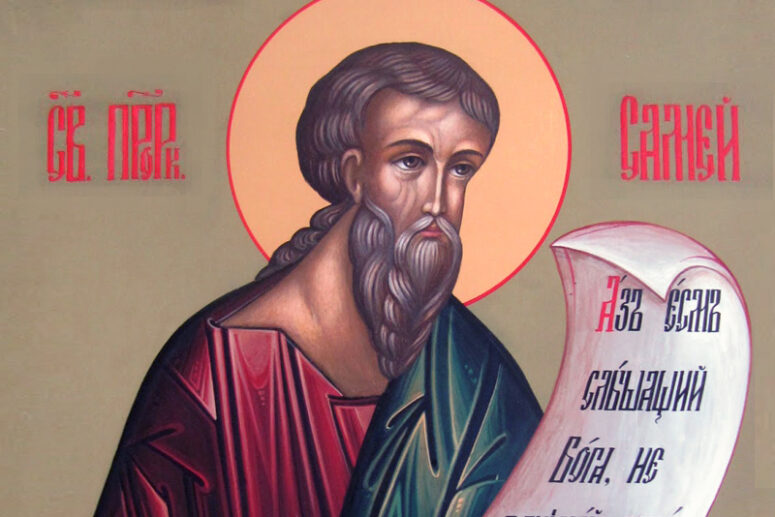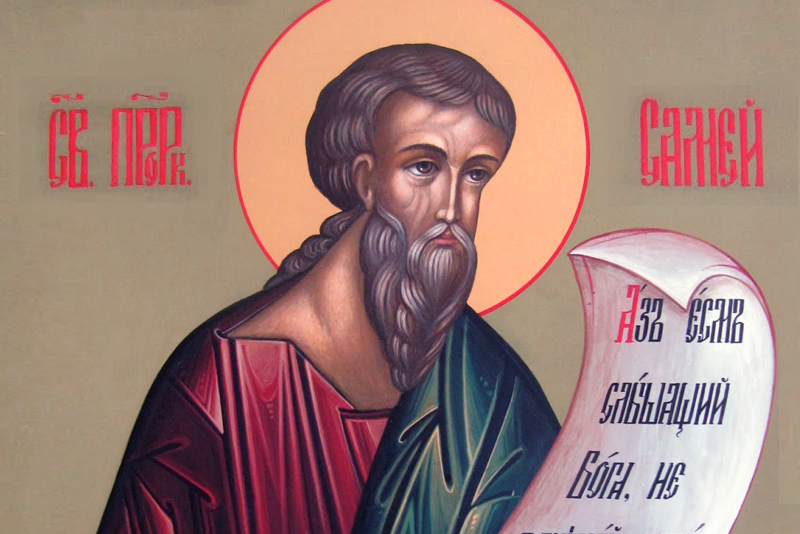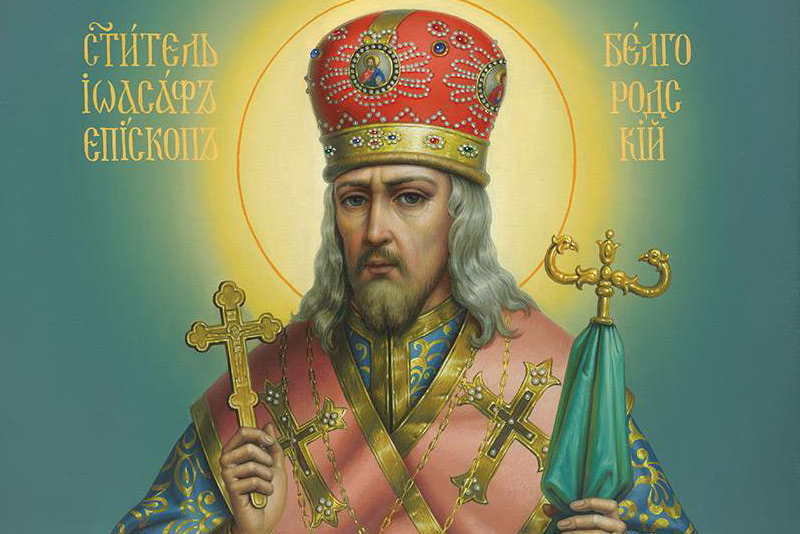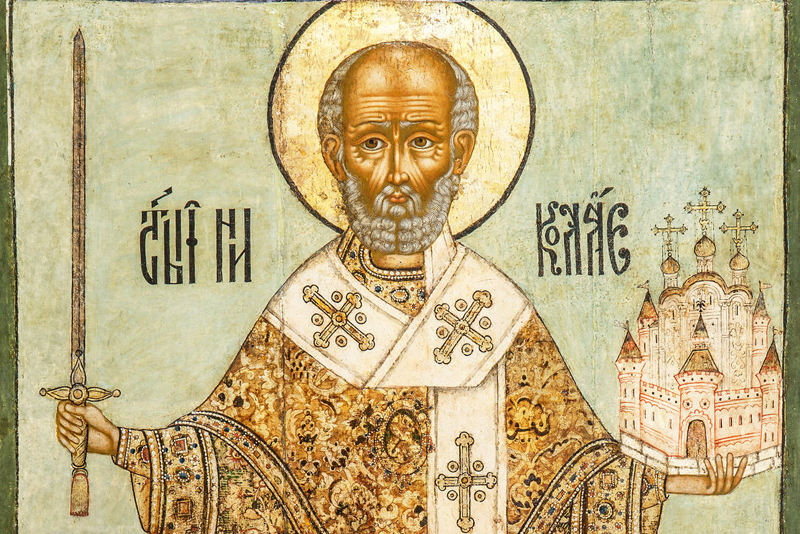
As we may be aware, prophecy in the Old Testament was not the lot of only four great and twelve minor prophets listed by name on the content page of the Bible.
Along with the great and famous prophets such as Moses, Samuel, Elijah and Elisha, the Bible also speaks about those who play a much less prominent role in the narration but are still glorified by the Church. Prophet Shemaiah is one of them. We celebrated his feast day on 22 January.
Known facts about this prophet can be presented in only a few sentences, yet their significance is great, and the implications are far-reaching.
Let us recall that after the reign of King Solomon, the once united Jewish Kingdom split into two kingdoms – Judah and Israel. The time is 10th century BC, given that Solomon died between circa 932 and 928 BC. The catalyst for the secession were the words and actions of his Rohoboam. Presumably, his ambitions and claims to power obscured his logic and common sense, as it happens to many people at all times. As we read in the third book of Kings, the people implored Rehoboam to ease the taxes that his father had imposed and promised to remain loyal. Yet he chose not to listen to the wise elders, and instead heeded to the more reckless and hot-headed of his advisers like he was himself. The king’s reply is well known: “My father made your yoke heavy, but I will add to your yoke: my father beat you with whips, but I will beat you with scorpions.” (3 Kings 12: 14). Few found his rash reply palatable, and, unsurprisingly, an uprising of ten tribes (except the tribe of Judah and half the tribe of Benjamin), which formed a separate state under the rule of Jeroboam I.
In response, the Kind of Judah gathered a large army to win back the lost territory, and at this point, Prophet Shemaiah comes to him. He conveys to Rohoboam the following commandment from God: “You shall not go up nor fight against your brethren the children of Israel: let every man return to his house, for this thing is from me.” 12, 24). The war was prevented. This episode leads us to some obvious conclusions. Legally, Rohoboam as the rightful heir to Solomon was entitled to the return of the territory that had seceded from him illegally. But God stops him to prevent the killing of people of his blood. What we see here is a clear discrepancy between the Truth of God and the truth of man. Sometimes, these truths are not just different, but completely opposed. Man may believe that something is fair and correct in the eyes of the almighty and all-knowing God, but in fact, is not.
Some wars may seem just (and even sacred), but let us not delude ourselves into thinking that fighting them does not amount to murder. We should remember first and foremost that the words ‘of our blood’ does not apply only to people of the same ethnicity or culture, but to all of mankind. In this regard, the following teaching of the Venerable Saint Isidore Pelusium is noteworthy: “Although the killing of enemies in wars is prima facie a legitimate act, and statues are erected to glorify the victors and their deserts; however, such killing is not without guilt, when the relationship of all people onto one another is taken into consideration; and for this reason, Moses prescribed someone who killed another at war to subject themselves to cleansing and exhortations.” Saint John Chrysostom, the teacher of the Venerable Isidore, spoke well about the legal aspect of the problem. He underlined that any war is rooted in sin, and therefore the guardians of laws and genuine guardians of justice must avail themselves of all means at their disposal to reign in the sins and thereby eliminate the reasons to go to war. Rohoboam could not restrain his passions, and peace was almost broken kindred blood was nearly shed. God had no choice but to intervene in matters of the state, so to speak, through the prophet Shemaiah.
As Jesus Christ rightly said, at the end of times, Nation will rise against nation, and kingdom against kingdom, and there will be earthquakes in various places (Matthew 24: 7), for ‘because of the increase of wickedness, the love of most will grow cold.” (Matthew 24, 12). As sin multiplies in the world and among the people, wars and strife will become only more severe and frequent. Yet we should not fear. As we see from the example of the Prophet Shemaiah and Rohoboam, God will not abandon his chosen people, today’s Christians.
Now let us go over to the next, and final fragments from the Scripture about the Prophet Shemaiah. Rohoboam had established the kingdom, and had strengthened himself, he forsook the law of the Lord, and all Israel with him. (2 Chronicles 12: 1). In general, there is nothing new under the sun, however sad it may sound. The punishment was imminent, and it came. This time, the instrument of God’s wrath was Faraoh Strizhak I who captured much of Judah and advanced to the walls of Jerusalem. At that point, Shemaiah comes to King Rehoboam again and gives him the following message from God: You have forsaken me, and therefore have I also left you in the hand of Strizhak (2 Chronicles 12: 5). Yet Rohoboam and the kings of Judah humbled themselves, and the word of the Lord came to Shemaiah, saying, “They have humbled themselves; therefore I will not destroy them, but I will grant them some deliverance, and my wrath shall not be poured out upon Jerusalem by the hand of Strizhak.” (2 Chronicles 12; 7). Rohoboam did not enter history as a righteous king of Judea; he spent much of his reign fighting wars with Jeroboam, yet he humbled himself, and thus averted his own death, and the destruction of his people.
What should we learn from this story? It teaches us that the will of God may interact with that of man. Where man is willing to change, God also may reconsider His intentions in his regard, individually and collectively. One notable example in this context is that of the Jewish king Hezekiah, whose repentance brought delivery from the Assyrians to his people, and extended his own life by fifteen years (4 Kings 20: 1-6). Let us be mindful that repentance and change in a people consist of repentance and change in every member. No-one can know the time and year of the enthronement of the Antichrist and the second coming of the Lord. I do not know if we can delay these by lamenting our sins and cultivating virtues in ourselves, but it is quite possible that we can hasten the end of the world by our sins and vices.
Again, we should not let ourselves be frightened by any sorrows that may come; instead, we should direct our energy towards the inner work. Our ultimate goal is not peace in the world, but the grace of eternal life; yet peace among the people and nations – at least on a local level – is a likely result of our progression towards God, the work of our lives.
It might seem to us that we are engaged in a vain struggle, and our present situation is only worsening. Sometimes, we seem to get no tangible result even when we double our efforts. Still, we should not let ourselves fall into despair, but remember the third appearance of Jesus to His disciples, who had been catching fish all night but got nothing but an empty net. He tells them to throw the net again and dragged ashore a net with 153 large fish. (John 21: 1-14). Likewise, we should never abandon our work even when it seems futile; instead, we should wait patiently until the morning, to meet our loving God and Saviour.
Translated by The Catalogue of Good Deeds
Source: https://pravlife.org/ru/content/prorok-samey-o-voyne-i-situacii-kogda-chelovek-mozhet-izmenit-volyu-bozhyu




